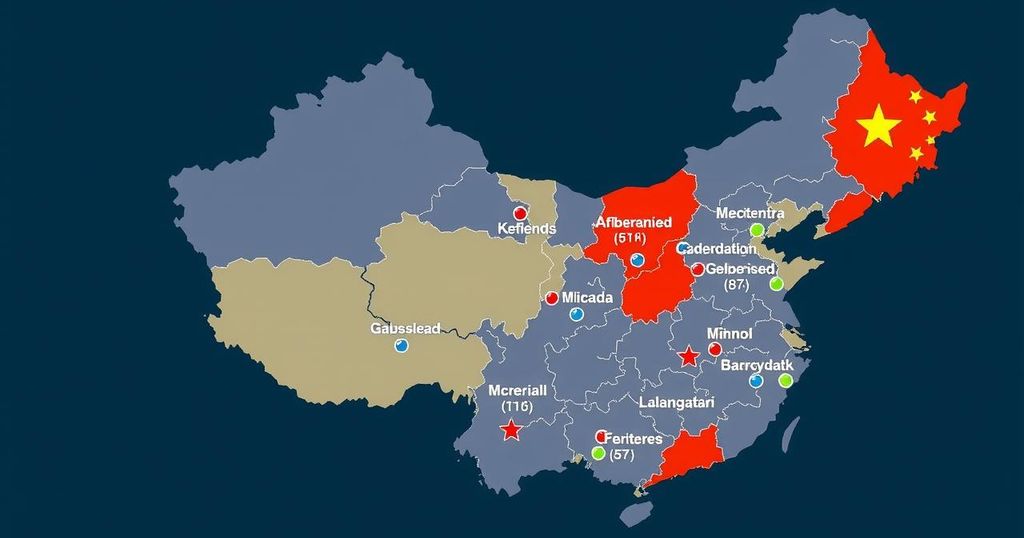Chinese State Media Highlights US Electoral Divisions Amid Tension Over Relations

Chinese state media emphasizes US political divisions and unrest as election results are awaited, suggesting that relations with China will remain tense regardless of the outcome. Coverage highlights heightened security measures and depicts elections as symptomatic of deep societal fractures, indicative of a broader skepticism among Chinese citizens about the impact of US electoral politics on bilateral relations.
As election results unfold in the United States, Chinese state media has capitalized on the opportunity to underscore the nation’s political fragmentation and concerns over potential unrest. Beijing, sensitive to criticisms of its own authoritarian governance, has increasingly mocked the American democratic system. Coverage from Chinese outlets highlights social divisions and the anticipation of turmoil, suggesting that irrespective of the election outcome, relations between the two powers are unlikely to improve. In its reporting, state-run media, such as the Global Times, has characterized the election atmosphere as fraught with fear, citing violence and unrest. Coverage from CCTV portrayed a scene of heightened security in Washington, DC, with boarded businesses and police reinforcements, neglecting to mention the peaceful voting participation of millions. Discussing the election, commentary from Beijing Daily likened US elections to theater, attributing current chaos to extreme political polarization. Chinese citizens expressed skepticism toward the impact of the election, with many believing that relations with the US would remain strained regardless of the victor. This sentiment reflects a broader consensus in China that US policies aimed at curbing Chinese influence would persist, irrespective of whether the incumbent or former president assumes office. Past actions from former President Trump and current President Biden have emerged as pivotal in shaping this outlook. Both administrations have enacted competitive policies that place limitations on China’s technological and economic advancements, further complicating bilateral ties. An interpretation common among Chinese social media users echoes the belief that the constraints imposed by the US will continue, irrespective of election results.
The article examines the portrayal of the US elections by Chinese state media, emphasizing ongoing tensions between the United States and China. Beijing has consistently reacted to US criticisms of its political system by highlighting perceived flaws in American democracy. With election processes underway in the US, Chinese reports focus on societal divisions and the risks of unrest. This backdrop aids in understanding the reasons behind China’s skepticism towards US electoral outcomes and bilateral relations.
In summary, Chinese state media has spotlighted the polarization within the United States as elections draw near. The consistent message attributes social unrest to deep divisions between political parties while conveying a muted optimism towards improved US-China relations. The Chinese populace largely perceives that the election outcome will not alter a bilateral strategy aimed at containing China’s rise on the world stage. Observations drawn from recent administrations reaffirm the belief in enduring contention regardless of who claims victory in the US elections.
Original Source: www.cnn.com






